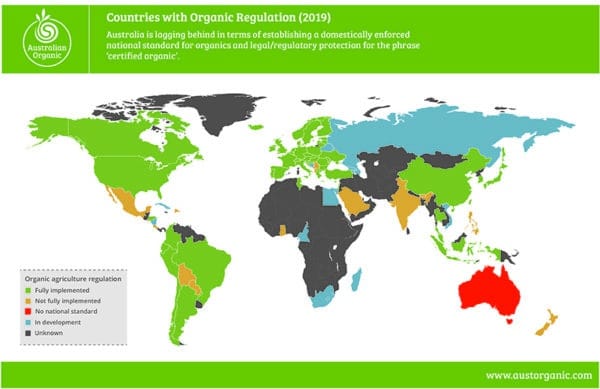Navigating Natural & Organic: Niki Ford, Australian Organic
The natural and organic industry is continuously growing and shifting, with new trends, regulations, products and practices being introduced into market everyday. How does one keep on top of it all? Naturally Good has you covered, as we speak to industry professionals and experts on the hottest topics and trends, business practices and solutions, and what’s happening in the natural and organic industry.
Niki Ford is the CEO of Australian Organic, Australia’s leading body representing the organic industry. With a highly developed skillset curated from more than 15 years of working in the FMCG sector, and passion for the organic industry, Niki’s detailed knowledge of the end to end consumer experience allows her a clear understanding of obstacles and challenges industry members face in the highly competitive retail market.
Hear from Niki as she takes us through what’s in demand currently in the organic industry, and more about what Australian Organic plans are for 2020 and beyond.
- What type of organic products are in demand?
Organic consumers can’t get enough of Australian certified organic products. 18 out of 20 categories of organic products saw gains in 2018, with the strongest gains seen in skincare/cosmetics, non-alcoholic beverages and organic packaged meals. Organic consumers are no different to non-organic consumers, they are looking for convenience as well as wanting to ensure general health and wellness. Products such as non-alcoholic fermented beverages, frozen meals and beauty products fulfil these needs.
More recent organic shoppers say they began purchasing organic because of the positive personal health impacts, with 47% saying the key prompt to begin was ‘becoming more aware of the impact of food, fibre or cosmetics had on personal health.’ 49% of shoppers said their awareness of the impact on the environment prompted them to start buying organic.
The top 3 perceived benefits of organic food amongst shoppers are ‘chemical-free’, ‘environmentally friendly’ and ‘additive free.’
The top export destinations for Australian organic products in 2018 were the USA, China, New Zealand, South Korea and Singapore, with beef, processed foods and wine representing the top organic export by tonnes. Almost 40% of organic exports (by tonnes, certified by ACOCL and NCO) were destined for North America, followed by 29% to East Asian markets and the balance of 31% across the rest of the world. Exported products were destined for 61 different countries with an estimate of 30,155 tonnes exported in 2018.
The USA continues to be the most important export destination in terms of share of total tonnage with a growth of 11% since 2017. There has also been significant new growth in the New Zealand market.
100% of certified organic eggs were exported to Hong Kong in 2018, along with 92% of organic beef and 77% of organic lamb/sheep meat exported to the USA, 87% of organic soya products went to South Korea and 77% of organic baby food/formulas were exported to Mainland China.
(Data from the Australia Organic Market Report 2019)
- What is AOL setting out to do to help retailers, suppliers and the overall industry?

Currently, the single biggest competitor to certified organic products domestically are “fake organic”. Domestic legislation will not only significantly increase exports for Australian Organic businesses, it will also increase consumer confidence through truth in labelling.
Australia is out of step with global standards and is the last developed nation in the world to have an enforced domestic standard for the use of the word “organic”. The only way an Australian consumer or handler can be certain a product is truly organic is to look for a certification mark. There are currently six marks used within Australia, each mark is attached to a certification body approved by Department of Agriculture (DoA) to the National Organic & Bio Dynamic Standard (NS) under the Exports Control Act (1982).
Australian Organic’s number one goal for 2020 is to achieve domestic regulation for the organic industry. Achieving domestic legislation will not only provide consumers with the confidence to buy organic products without question and remove ‘fake organics’ from the shelves, but also provide Australian businesses affordable market access into international markets.
Australian Organic is proposing that the National Organic & Bio Dynamic Standard (NS) be enforced domestically to provide confidence in a dynamic growth industry – estimated to be worth $2.6 billion in Australia alone.
-
Enquire!
- Register
